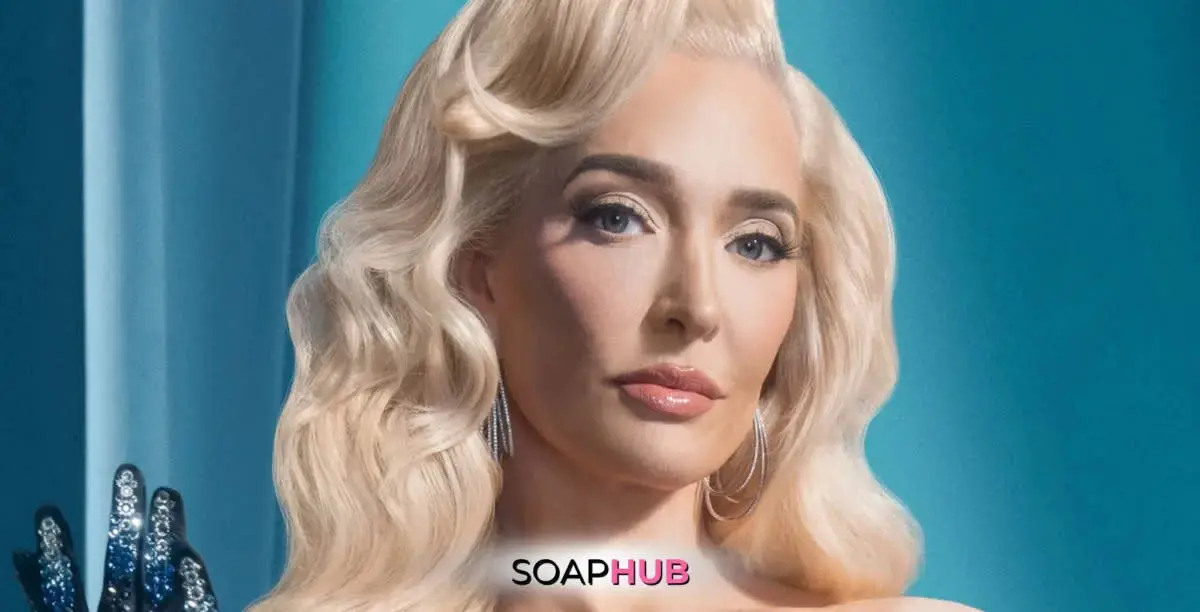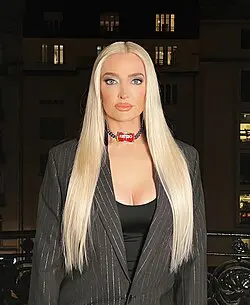In the vibrant tapestry of the music industry, where collaborations can catapult artists into new realms of popularity and recognition, the tale of Erika Jayne and Brooke Candy offers a poignant reflection on the intricacies of fame and credit. In the wake of the success of the indie film Anora—which swept the Oscars—and its standout track, “Drip,” the dynamic between co-creators has sparked conversations about acknowledgment and the often-overlooked contributions of female artists. This complex web of collaboration illuminates both the triumphs and the challenges faced by independent musicians in an industry that often places them in the shadows.
Brooke Candy, a steadfast presence in the LA music scene for over a decade, was thrilled at the prospect of having a star from The Real Housewives franchise contribute to her song. Yet, as the accolades for “Drip” poured in, she found herself sidelined, as Erika Jayne took center stage, leaving Candy to grapple with feelings of disappointment. This article delves into their collaboration, examines the fallout of their partnership, and highlights the need for recognition of the creative forces behind the music.
The collaboration: Brooke Candy and Erika Jayne’s ‘Drip’
In 2019, when Brooke Candy was crafting her album Sexorcism, she sought to fuse the worlds of reality television and pop music by inviting Erika Jayne to provide vocals for the catchy chorus of “Drip.” This coupling was particularly strategic. Both women, with unique identities—Candy known for her edgy, avant-garde style and Jayne for her flashy persona—seemed poised to make magic together. Their artistic collaboration promised to blend distinct flavors, merging Candy’s underground roots with Jayne’s mainstream appeal.

Here are a few highlights about the collaboration:
- Brooke Candy has collaborated with notable artists such as Charli XCX, Lizzo, and Grimes throughout her career.
- Erika Jayne, a recognized figure in pop and reality TV, has amassed a significant fanbase and chart-topping tracks.
- The incorporation of “Drip” into the indie film Anora, which won five Oscars, propelled its fame and popularity.
At the time, Candy felt optimistic about the partnership. However, the ensuing events would showcase the challenges inherent in the music industry, particularly for independent female artists who often feel their contributions are minimized.
Success of ‘Anora’ and the rise of ‘Drip’
The film Anora not only captured the hearts of audiences but also became a critical darling, racking up five Academy Awards. Its success elevated the visibility of the soundtrack, particularly the track “Drip,” which became synonymous with a pivotal scene in the film. With the film gaining momentum during awards season, Erika Jayne was invited to host a special screening of Anora, set against the backdrop of the iconic AMC theater at The Grove in Los Angeles. This event, however, turned into a point of contention.
Drama unfolded when Brooke Candy discovered that Erika Jayne would be promoting the event without acknowledging Candy’s crucial role in the song. Much to Candy’s dismay, Jayne positioned the event as a celebration of “my song Drip,” arguably dismissing Candy’s creative contribution. This oversight raised questions about artistic integrity and the importance of recognizing collaborators in the spotlight.
The fallout: Heartbreak and disappointment
As the narrative of their collaboration played out in the public arena, Brooke Candy’s feelings of heartbreak were palpable. She expressed her astonishment upon realizing that she was not included in the festivities surrounding “Drip.” Candy, who had worked tirelessly to secure the inclusion of the song in Anora, felt silenced in a moment she believed should have celebrated her artistry. “I’m basically a part of this article because I’d like to be a voice for all independent artists everywhere,” she shared. This statement resonates with many artists who struggle to thrive in an industry where credit is often overshadowed by celebrity.
The repercussions of Jayne’s actions went beyond just a missed invitation; they represented a broader issue facing female artists in the entertainment industry: the lack of acknowledgment and visibility.
| Artist | Contribution | Recognition |
|---|---|---|
| Brooke Candy | Primary artist, songwriter | Underappreciated in promotions |
| Erika Jayne | Featured artist, backing vocals | Heightened publicity, hosted event |
On the reunion episode of Real Housewives of Beverly Hills, Erika Jayne acknowledged her role as a featured artist on the track but failed to extend a public shout-out to Brooke Candy. This further exacerbated Candy’s feelings of neglect, as such gestures in popular media carry significant weight in boosting an artist’s visibility.
Brooke Candy’s message to independent artists
In the midst of her heartbreak, Brooke Candy conveyed a broader message for independent artists who often feel marginalized. “It’s really sad that we have to fight for what’s ours and for things that we make when more often than not artists are beautiful compassionate people who just want the world to be more beautiful.” This sentiment captures the essence of the struggles faced by many in the creative fields who work tirelessly, yet find it challenging to secure the recognition they deserve.
Despite these hurdles, Candy remains resolute in her vision and purpose. By openly sharing her experience, she hopes to inspire a sense of solidarity among independent female artists. This approach highlights the importance of uplifting one another in an industry that can be unforgiving.
Industry perspectives: The other side of the story
Addressing the controversy, a source close to Erika Jayne claimed that Brooke was the only vocal participant who financially benefited from the project. This statement further complicates the narrative, as it raises questions about what constitutes fair acknowledgment in collaborations. The source emphasized that Jayne did not receive, nor did she ask for, any financial compensation for her contributions, asserting that she covered all of her expenses during the project.
- Erika Jayne: Featured artist status, no financial gain from “Drip.”
- Brooke Candy: Primary artist who gained financially from the project.
- Collaboration dynamics often lead to misunderstandings about credit and recognition.
Indeed, the entertainment industry often operates on complicated dynamics where financial successes do not always equate to the recognition and credit one deserves. This reality often leads to artists feeling overshadowed by their more commercially successful counterparts, an issue exacerbated for independent female artists.
The legal landscape: Erika Jayne’s challenges
Erika Jayne has faced her share of controversies, including overcoming a legal battle in 2022 related to her estranged husband’s fraud scheme. With the storm of legal strife behind her, her efforts in the music industry appear more focused now than ever. This effectively highlights the unique pressures faced by artists navigating both personal and professional trials, particularly within the pop music realm. Jayne’s resilience can be commendable, yet it also raises questions about the balance of power in collaborations.

The complex dynamics of creative partnerships highlight the necessity for clear communication and mutual respect within collaborations in the entertainment industry.
The need for recognition in music collaborations
As discussions around acknowledgment in the music industry resurface, the need for equitable practices becomes increasingly evident. The narrative surrounding “Drip” and its ensuing drama serves as a reminder that acknowledgment in music collaborations is not merely a matter of ego; it is about recognizing the artistry and hard work that each contributor brings to the table, particularly in a landscape where female artists face uphill battles for visibility.
- The importance of crediting all artists involved in a project.
- Collaboration serves as a platform for shared creativity and recognition.
- The struggle for visibility among independent artists in popular culture.
Ultimately, the lessons gleaned from this situation challenge individuals and organizations within the industry to cultivate environments where all artists feel valued. Acknowledging contributions leads to a richer creative community where artists can thrive collectively. As the music industry continues to evolve, the emphasis on collaboration—seen through the lens of respect, recognition, and empathy—will be essential in moving forward.
Brooke Candy’s story, entwined with Erika Jayne’s career, reminds us that the power dynamics in music and entertainment can define not just the trajectories of artists but also impact the very culture in which they operate. This narrative encourages the conversation around how we celebrate and amplify the voices of creators, ensuring that no artist remains in the shadows, particularly in a world as vibrant as music.
I’m Mikael, a 35-year-old Gossip Gravity Creator. I’m passionate about curating captivating content that sparks conversations and ignites curiosity. Join me on this exciting journey as we explore the fascinating world of gossip and trends together!



